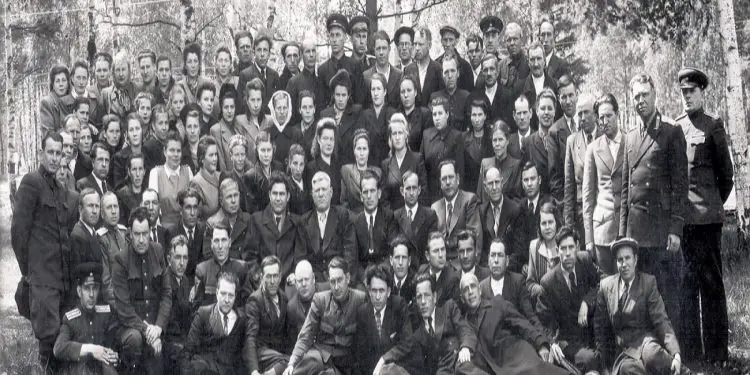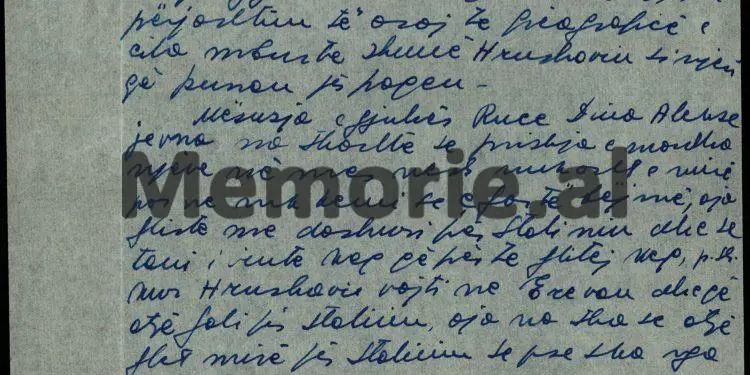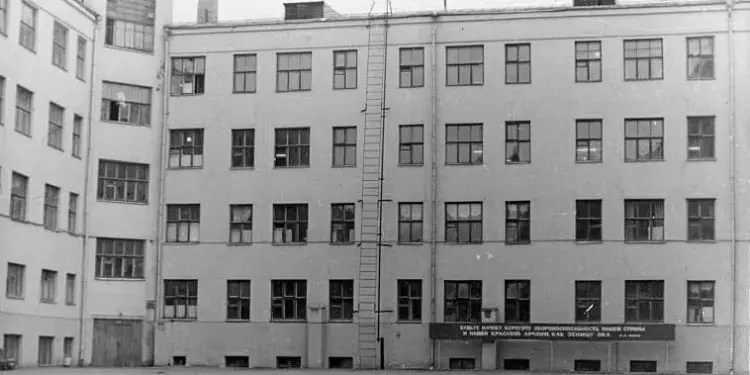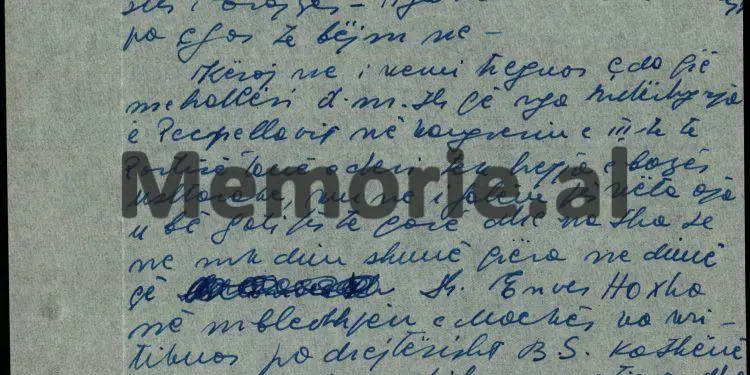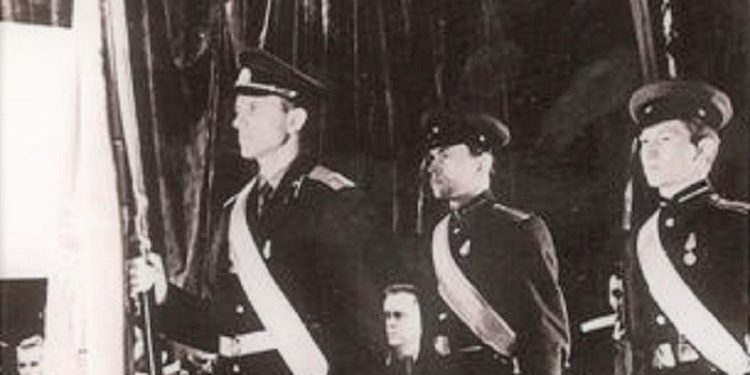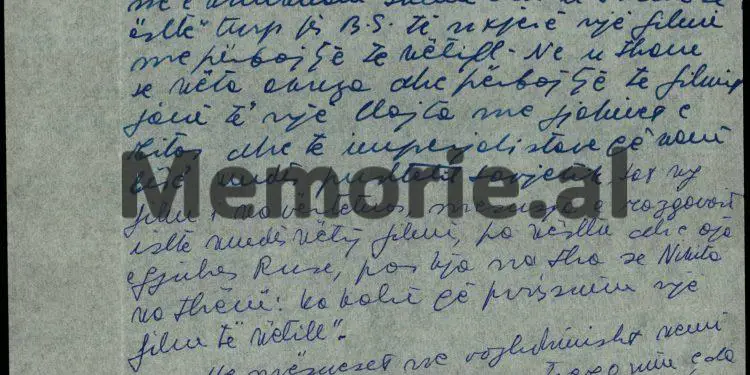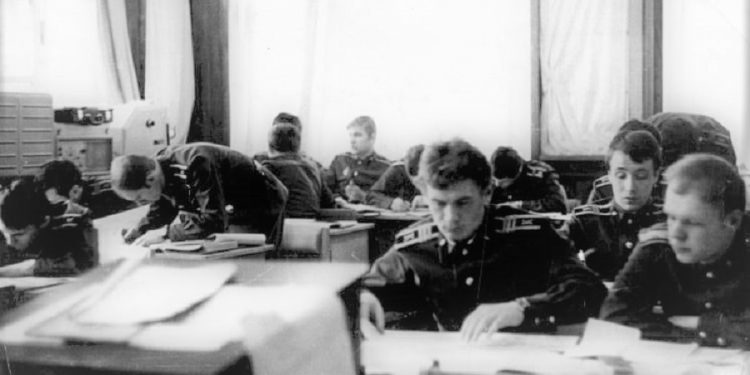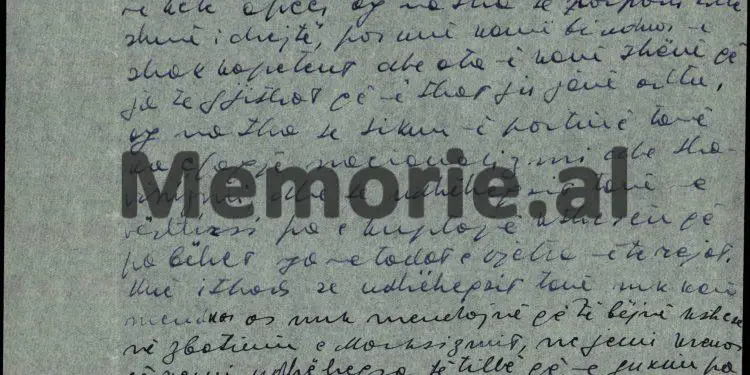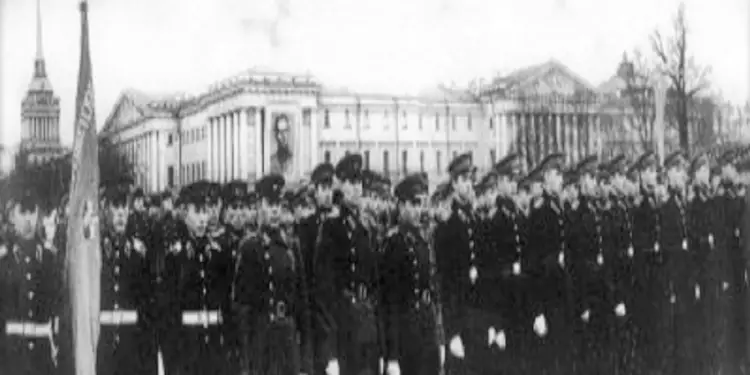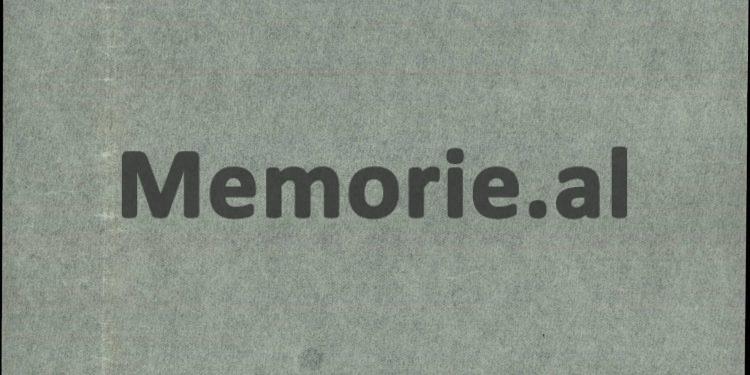Dashnor Kaloçi
Part ten
Memorie.al publishes some archival documents with the initials “Top secret”, issued by the Central State Archive in Tirana (Fund of the former Central Committee of the ALP) which belong to 1961 and are part of a voluminous folder with letters , reports, information, reports, instructions, petitions, etc., where it comes to the beginning of contradictions and the breakdown of official Tirana’s relations with the Soviet Union, which at that time was very much felt by Albanian students who were then studying in schools and universities of the Soviet Union, who, by order received from Tirana, discontinued their studies and waited for instructions to return to Albania. The complete file of Albanian students in the former Soviet Union, where most of them, mainly those who attended Military Academies, High School of State Security, Police, Border, Justice, etc., had major problems and were met with many vicissitudes with the Russian official authorities, leading to the measure of arrest as well as the intervention of the Albanian military attaché in Moscow, Major General Halim Ramohito, to unblock the situation and return the Albanian military students to their homeland.
Continued from the previous issue
R e l a t i o n
(On some talks in Moscow)
We talked to the teachers in general and told them about the position of our Party, and the unjust measures taken by Khrushchev against our country after the Bucharest Summit and especially after the one in Moscow. Teachers generally agree with our views except for that of geography which boasts Khrushchev, saying he fights for peace.
Russian language pedagogue Nina Alekseyevna used to tell me that breaking up relations between us is not good, but we have nothing to do. She spoke lovingly of Lenin and Stalin, and told me a case in which when Khrushchev had gone to Yerevan he had been compelled to speak well of Stalin, that he had nowhere to go.
In particular we talked in teaching practice with the Russian language teacher, Maria Ivanovna. She listened to us attentively. In a conversation we were having about sending flour, she was right, but later said that Khrushchev should also understand that he could not give the flour to everyone.
To our questions: how is it explained that one of the accusations against Stalin was that he had come out on the structures of the party and the state, and that he had violated collegiality, etc. But now practically why is it being done in the same way?!
Pedagogy, expressed worse than then. When we told him how things were with Zhukov, since he was visiting our country, he was expelled from the Presidium and removed from the Defense Council?!
She told me: that was right but we had nothing to do. To this we have shown everything, from Pospellov’s interventions in the Third Party Congress, to the departure of the military base. After we explained these things she almost cried and declared to us that: we did not know these things. We only know that Comrade Enver Hoxha unjustly criticized us as a place in the Moscow Meeting that he did not help us, and is preparing the Albanian people for war, etc.
For this reason, I gave the report of Comrade Enver held at the IV Congress of the ALP, printed in Russian. After she read it, she was surprised by the content of the warm words towards friendship with the USSR. Maria, spoke better of the Yugoslavs.
To her we gave the pamphlet on the prisons and camps of Yugoslavia. He asked us how we knew these things, and are the words said about shooting people there true?!
We told him that they are more than true and that is why Khrushchev does not allow us to publish this in “Pravda”. In the discussion that took place about the film “Clean Sky”, we criticized this film a lot and said that this film was a disgrace to the Soviet Union. We told him that in terms of content this film was the same as the speech of Tito, or of the American imperialists, who spoke out against the power of the Soviets.
The same opinion about this film was shared by our professors, even the Russian language pedagogue, who told us that Khrushchev, after seeing the film, had said: “We have been waiting for such a film for a long time.”
We, the professors, discussed everything and told them everything that our press wrote. We also told them about the trial of the conspirators that was taking place in those days in Tirana and we emphasized that “Pravda” did not write anything about this trial.
At school, it had been the rule for several years that on the day of the liberation, free conversations were organized with students of other nationalities, and with the presence of our teachers. Hungarians, Czechs, Romanians, etc. came to us. After the conversation, questions were asked and one of the questions I asked was: how did the Yugoslavs behave at the border?!
The Hungarians openly said that the Yugoslavs were working against them by sending saboteurs to the border, and that they had prepared the Hungarian counter-revolution in 1956, and so on. Major Totov said that during the XX Congress of the KP of the Soviet Union, there was talk of easing the class war, while Rakoshi spoke with admiration. The Romanian said that there had been no provocations by the Yugoslavs against them, while he did not know anything about the Dej case.
Even after the teachers left, the Romanian told us that the Yugoslavs also sent agents and saboteurs to the border against them, but we cannot make these discussions in the eyes of our professors, because Khrushchev is pursuing a policy of friendship with Tito.
I also told him, we are working for such a thing, but during the Tirana Conference, the Yugoslavs organized an entire agency against us and our Party could not remain silent in the face of this fact. We unmasked this in the eyes of 81 parties in Moscow.
The Romanian told me that: in his country this issue had not been resolved yet.
I told him that in our press and radio, they talk all day against Yugoslav revisionism, while he told me that: in Romania there are still people who are confused, whether they should speak or not speak against Tito. They are trying with all their might against us, while we treat them kindly.
We did not ask this question to the secretary of the Czech Party Party Organization, and in the presence of the Soviets, he did not speak much. But after they left, he came and told us that: the Yugoslavs also work against the Czechoslovaks.
On vacation I was alone with Captain Hajdar Gjini. The Czech approaches us and tells us literally that: we are not allowed to speak openly, in the eyes of Soviet professors. He told us a case about the agent activity of an employee of the Yugoslav legation in Prague. He also told us that at the Polish border, many agents and saboteurs come to us to carry out espionage acts against Czechoslovakia. They are organized by the Polish Catholic clergy.
We deliberately questioned the students of the People’s Democracies, in the eyes of Soviet professors, to show them that the Yugoslavs are not only working against Albania, but against the entire socialist camp as a whole. In these talks, the professors told them that: the Yugoslavs only went badly with Albania. But now, they learned that official Belgrade was sending agents against all socialist countries.
We, Soviet teachers, have been asked the question: why did Khrushchev exchange telegrams with Tito, when the Moscow Assembly called the latter a traitor to Marxism?! On April 17, 1961, in our classroom we find a Soviet officer studying. I was there, together with Major Azem Gërxhaliu, and Lieutenant Andon Çerep. When he heard that we did not speak Russian, he told us to move to another place, as I might disturb you.
We told him: he could continue to study there, as it did not bother us. Later, after we told him that we were Albanians, he asked us what was happening between Albania and his country?! He also stressed that Albania had recently unjustly attacked the Soviet Union.
When we asked him what he had criticized Comrade Enver for the Soviet Union, he told us that we had allegedly complained that Moscow was not helping us as a small country.
Then Azem and I, after Andoni left, told the Soviets about our Party’s attitude towards Khrushchev’s unjust interventions towards us, about Comrade Enver’s critics at the Moscow Summit, about the withdrawal of the naval base, about the attitude towards Panayot the Elder. For the trial against the conspirators, but that “Pravda” does not write anything, etc.
I also spoke to him about the sudden and incorrect departure of Soviet advisers and specialists from Albania. We also told him about the issue of flour, and about the disrespect of collegiality, as in the case of Zhukov’s dismissal.
For all this, he was forced to confess and tell us that: we were completely right.
I told all the truths in the relations between our two countries. I emphasized that Khrushchev and the newspaper “Pravda” describe Tito as an honest hero and patriot, while our press exposes him day by day for his revisionism. I also told him that: Khrushchev should not help Nasser and Nehru, who persecute the communists, or Kennedy and de Gaulle, who are almost at war with the USSR. He must unreservedly help the countries of the socialist camp.
In the end, the Soviet officer, after hearing all these arguments, was much moved and told us: he had not heard these things before. He asked us for the report of Comrade Enver printed in Russian, which he had held at the IV Congress of the ALP. After 3-4 days, we met this Soviet officer again and gave him the report.
This time, he told us that: not all the arguments we had said that day were true, as the Soviet leadership was for a softening of relations with the Yugoslavs, while only the Albanian leadership was with the old ideas against the revisionist current.
Then I told him that: our leadership respects and correctly applies the basic principles of Marxism-Leninism and we will die defending the teachings of the classics of socialism. We revisionists cannot call them comrades, we will call them as Lenin and Stalin called them, renegades and traitors.
In the end, after the conversation ended, he repented and told me that: you in spite of everything, you are right and that you are on the right track.
We communists here in Moscow have been helped a lot by the defense we have given to our ideas by shrugging off all those who showed distrust of us. Because our party had told us everything and we were well armed for its ideological defense.
Major Azem Gërxhaliu and Lieutenant Andon Çerepi agree with this content. /Memorie.al
Yours sincerely
Captain I.
Velo Marko
Tirana on 18.6.1961
The next issue follows




